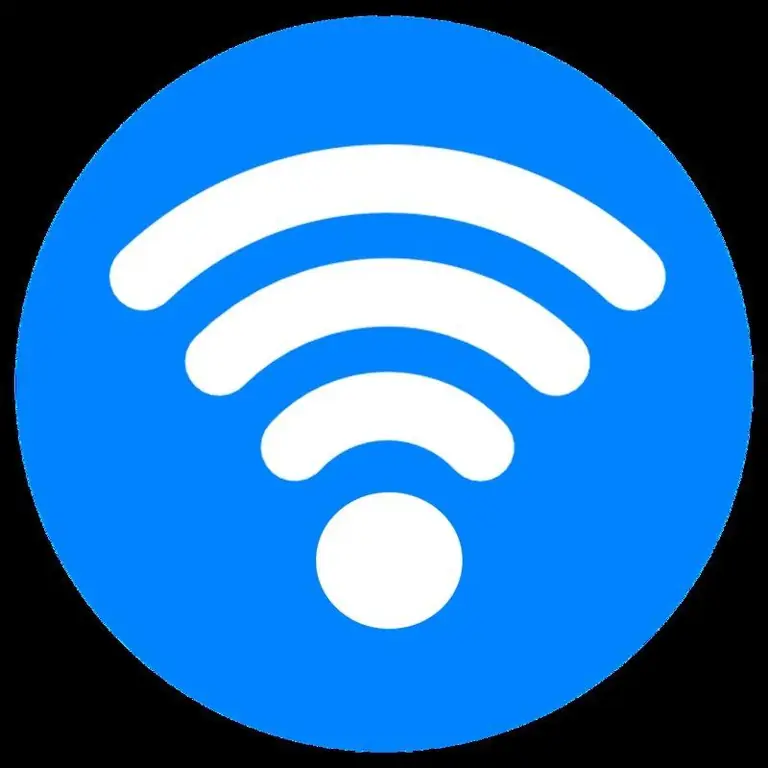
Table of contents:
- Author Bailey Albertson albertson@usefultipsdiy.com.
- Public 2023-12-17 12:53.
- Last modified 2025-06-01 07:32.
How to distribute Internet from computer to Android and iOS devices - different ways
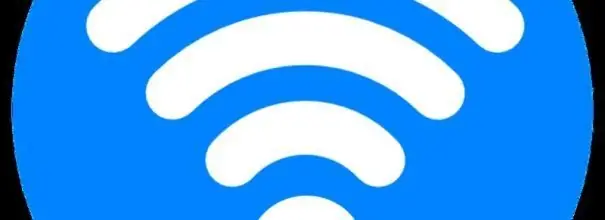
If your computer has access to the Internet, then you can share it with your mobile devices. There are several ways to do this. Each of them has its own limitations, but there is always one that will help you access the Internet from your phone or tablet.
Content
-
1 Ways to distribute the Internet
-
1.1 Using the USB cable
- 1.1.1 If you have root rights
- 1.1.2 In the absence of root rights
- 1.1.3 Video: Internet distribution from computer to phone
-
1.2 Using Wi-Fi and Bluetooth
- 1.2.1 What to choose: Wi-Fi or Bluetooth
- 1.2.2 Connection via system parameter settings
- 1.2.3 Video: sharing the Internet through an adapter
- 1.2.4 Command line connection
-
- 2 What to do if the Internet does not work
-
3 Transfer the Internet from the device
- 3.1 Android
- 3.2 iOS
Internet distribution methods
There are three ways, using which, you can connect the device to the Internet available on the computer:
- using a USB cable;
- via Wi-Fi network;
- via bluetooth connection.
Each of them has its own disadvantages that you need to be aware of, otherwise you will not be able to connect to the Internet.
Using a USB cable
This method is not suitable for owners of devices running iOS, since the iPhone and iPad are able to distribute the Internet via cable, but not receive it. Perhaps this is due to security. If you have an iOS device, then use one of the other two methods described below. On devices running Android OS, you can distribute the Internet via a USB cable. Two options are possible here.
If you have root rights
To connect an Android device to the Internet by means of the system, its user must have root rights, that is, the device firmware must be jailbroken. In this case, you will need to use the built-in settings intended for developers of mobile applications.
First, you need to prepare your mobile device. It must be previously connected to the computer via a USB cable. Follow these steps:
-
Open access to developer settings - by default they are hidden to prevent an ordinary user from breaking the system. To do this, after entering the device settings, go to the item showing information about the device.

Go to system information In the device settings, open the "System" section
-
Select "About phone".

Go to phone information We open the section "About phone"
-
Scroll through the information that appears to the end. When you see the line "Build number", start clicking on it and press until you see the notification "Developer settings are open". Usually 8 to 15 clicks are sufficient. As a result, you will get access to additional system settings.

Accessing developer settings We click on the build number many times in a row until we see a message that the developer settings are available
-
Go back to the device information, find the new "For developer" item in it and open it.

Go to developer settings Select the section "For Developers" and open it
-
Find the item that enables USB debugging and set the switch opposite it to the "Enabled" position.

Activate USB debugging Turn on USB debugging mode
-
Go back to basic settings and open the "Advanced" section.

Go to advanced options Open the "Additional" section
-
Check the box next to the "USB Internet" function.

Activating USB Internet Sharing We put a tick in front of the item "USB Internet"
Done, mobile device preparation is complete. Now you need to set up your computer. To do this, follow these steps:
-
From the Start menu (Windows 7) or the system search bar (Windows 10), find “Control Panel”. It allows you to change most of the operating system settings, including network settings.

Go to control panel Opening the control panel
-
Open the "Network and Sharing Center" section. If you can't find it, use the built-in search bar.

Go to the Network Operations Center Open the section "Network Control Center"
- In the list of networks, you will see two elements: a computer network with Internet access and a mobile device network, which has already been created, but does not yet have the right to use the first network with Internet access.
-
Go to adapter settings.

Go to network adapter settings Press the button "Change adapter settings"
-
Find a network in the list that has Internet access. Right-click on it to expand the context menu and select the "Properties" function.

Go to network properties Open the network properties in the context menu
-
In the window that appears, go to the "Access" tab. Indicate that other users can use this network, and select the mobile device network from the list. By this action, we indicate that the network created using the USB cable with the phone has the right to exchange data with the Internet.

Change access settings We indicate the network that needs to open access to the Internet
-
Using the method described in step 5, open the properties of the network associated with the Android device. In the window that opens, without leaving the "Network" tab, find the IPv4 protocol and expand its properties.

Distributed network properties Moving on to the properties of the IPv4 protocol
-
For the IP address, specify the value 192.168.0.1, and for the subnet mask - 255.255.255.0.

Configuring IPv4 Enter the desired values for the IP address and netmask
Done, save your changes and try using the Internet on your mobile device.
Without root rights
If you do not have root rights, that is, the firmware of the device is not jailbroken, then it is not necessary to receive them to distribute the Internet via cable. There is another way - using a third-party program.
First, you need to prepare your Android device. After connecting it to the computer via USB, follow steps 1-5 described in the instructions of the item "If you have root rights". By doing this, you allow the computer to change the device settings.
Further actions are performed on the computer:
- Download the Adb run app from the developer's official website. Install and run the program.
- Open the Other command section.
-
Select the Reverse tethering function.

Adb run application settings window Open the item Reverse tethering
- The program shows a list of steps that need to be completed before you can distribute the Internet to your phone.
- Install Java-set, for this click on item 1. It is required for the application to work with an Android device.
-
After installing the Java kit, install the application on the device. Click on the third item, and then allow the installation of the application on the device (a corresponding notification will appear on the device display, in response to which you need to select the "Allow" option) and wait until the installation is complete.

Configuring the Adb run app on the device We carry out all the points in turn
- Done, the device has access to the Internet.
Video: distribution of the Internet from computer to phone
Using Wi-Fi and Bluetooth
You can distribute the Internet using both Wi-Fi technology and Bluetooth. The created network will be available for connection from both Android and iOS devices.
But there are two important conditions:
- if you are going to distribute a Wi-Fi network, then the computer must have a Wi-Fi adapter; in most laptops it is built-in, but only sometimes it is built into desktop computers, and if it is not there, the system will not even show the "Search for networks" tab and Wi-Fi access settings - you will have to buy an external adapter;
- the same situation when distributing the network via Bluetooth: if there is no Bluetooth adapter in the computer, then you need to buy it separately (it looks like a USB flash drive).
If you have the required adapter, then you can proceed to creating a network to which the mobile device will connect.
What to choose: Wi-Fi or Bluetooth
If you can choose, then choose the distribution of the Internet via Wi-Fi. This technology has several advantages:
- much more than 7 devices can connect to the network, while this number is maximum for a bluetooth network;
- the transmission speed is limited to a few hundred megabits per second, while the maximum internet speed available over a bluetooth network is 24 megabits per second.
Connection via system parameter settings
This method is the easiest, but it is only available in Windows 10. If you are using an earlier version of the operating system, then use the methods described below.
To connect devices by configuring system parameters, do the following:
-
Use the system search bar to find and open the Settings Console.

Go to computer settings Open the "Options" settings window
-
Open the "Network and Internet" block.

Go to network settings Open the section "Network and Internet"
-
Enter the "Mobile Hot Spot" subsection. In this section, you need to select the desired way of distributing the Internet: Wi-Fi or Bluetooth. If the computer is connected to the Internet through several access points, then select which connection will be distributed. Here you can change the name and password of the Wi-Fi network, which will need to be entered to gain access to it. You don't need a password to access the bluetooth network, but no more than 7 devices can connect to it at the same time.

Setting up a mobile hotspot We activate the hot spot
-
After the hotspot is activated, turn on the search for Wi-Fi or Bluetooth networks on your mobile device. When you see the distributed network (it can be identified by its name), connect to it. Done, you can use the Internet.

Wi-Fi network connection We connect to the distributed network
Video: sharing the Internet through an adapter
Command line connection
This method is suitable for all Windows users. It allows you to create and configure a Wi-Fi network to which you can connect from your mobile device.
Follow these steps:
-
Find the command line through the Start menu or the system search bar. Run it as administrator - right-click on it and select the desired function.

Launching the command line console Open the command line as administrator
-
Run the two commands below in a row.

Network creation via command line To create a local network, we run two commands in sequence
Commands for creating a local network:
- netsh wlan set hostednetwork mode = allow ssid = "network_name" key = "network_password" keyUsage = persistent - create a network;
- netsh wlan start hostednetwork - start the network.
Done, the network has been created, now it remains to open access to the Internet for it. To do this, follow steps 1-8 described in the second instruction of the "If you have root rights" section.
After access is granted, enable Wi-Fi search on your mobile device. When you see the distributed network (it can be identified by its name), connect to it. You can start using the Internet.
What to do if the internet doesn't work
If you shared a network, connected to it, but the Internet does not work, pay attention to the following:
- whether the new network has access to the Internet - you can check this using the second instruction (step 1-8), described in the paragraph "If you have root rights";
- the network may have been blocked by the built-in Windows defender.
If everything is fine with access, then turn off the Windows firewall, then re-distribute the network and check if it works.
Internet transfer from device
Having distributed the Internet from a computer to a tablet or phone, you can continue the chain and transfer the network created by the computer to other devices. Of course, you can connect several devices to the computer network directly, but if this is impossible for some reason, then you can use the mobile device as a repeater. At the same time, you should take into account that each intermediary will slow down the Internet a little, therefore, if possible, it is better to avoid the appearance of additional devices in the chain.
Android
To share internet from an Android device, follow these steps:
-
After entering the device settings menu, go to the "More" or "Advanced" section (depending on the version of the operating system).

Go to advanced settings We open the item "Advanced"
-
Activate the hotspot (in some versions of Android this feature is called "Hotspot"). Done, the device will start distributing its own network, to which you can connect from any other device.

Go to access point We go to the section "Access point or modem"
-
You can also activate a USB or Bluetooth hotspot. For example, a USB network can be used to distribute the Internet to a computer that does not have a Wi-Fi module. To do this, select a USB or Bluetooth modem in the access point settings.

Choosing a way to distribute the Internet Choosing the desired access point option
- Set the required parameters of the distributed network in the access point settings. and for the Wi-Fi network, edit the password, if necessary.
iOS
You can share internet on an iOS device by following these steps:
-
After entering the settings, open the item "Cellular".

Go to cellular settings We open the section "Cellular communication"
-
Go to the "Modem Mode" function.

Switch to modem mode Open the section "Modem Mode"
-
Activate the mode (switch to "On"). Done, Wi-Fi network is distributed. If you want to choose a different way to share the Internet, follow the instructions displayed on the screen of your device.

Activating modem mode Turn on the distribution of the network from the iOS device
You can distribute the Internet accessible from a computer in different ways. It is best to use a USB cable or Wi-Fi network, since then the transfer speed will be maximum. From a mobile device that received Internet from a computer, you can also distribute the network to other devices.
Recommended:
How To Distribute Internet Wifi (Wi-Fi) From An Iphone And Turn On The Modem Mode On An IPhone, What To Do If This Function Is Gone

How to enable tethering on iPhone, iPad, or iPod touch. How to use it via Wi-Fi, USB and Bluetooth. Possible problems and their elimination
How To Use Alice From Yandex: How To Install A Voice Assistant On A Computer And Phone, What Functions Does It Have

"Alice" from "Yandex" - the main functions, which differs from other voice assistants. How to use "Alice", how to install it on your phone and computer
How To Find A Phone If It Is Turned Off - At Home And In Other Places, Search For A Device On Android And Other Os Through A Computer, By A Sim Card, Imei
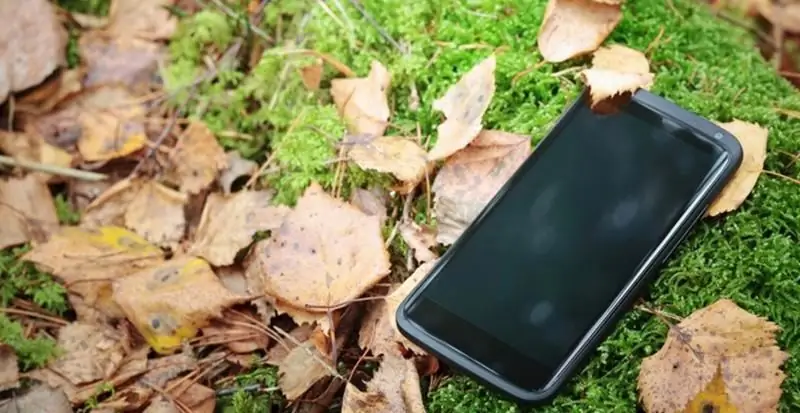
Various ways to find the switched off phone. When the device cannot be found and how not to lose it
How To Distribute Wi-Fi Via The Command Line From A Laptop Or Computer
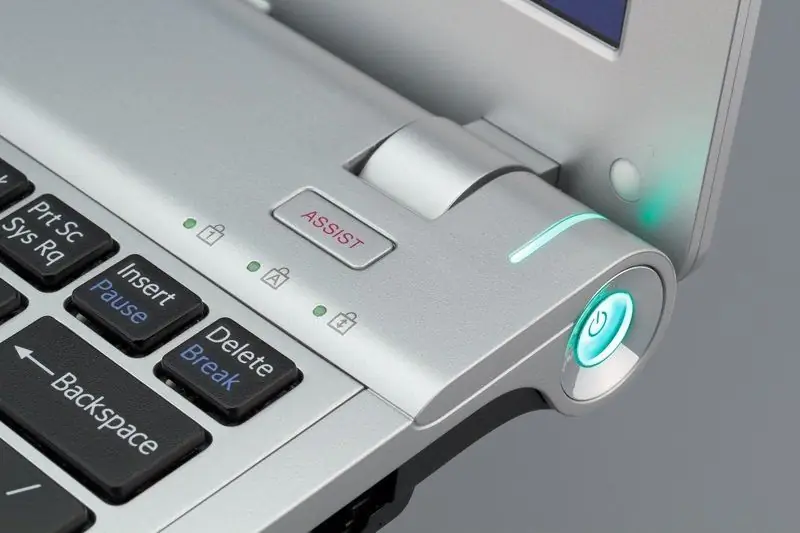
How to set up and create a wireless Wi-Fi network on a regular PC or laptop. What problems connecting to the created network can arise and how to solve them
How To Connect A Phone Or Tablet To A TV Via WiFi
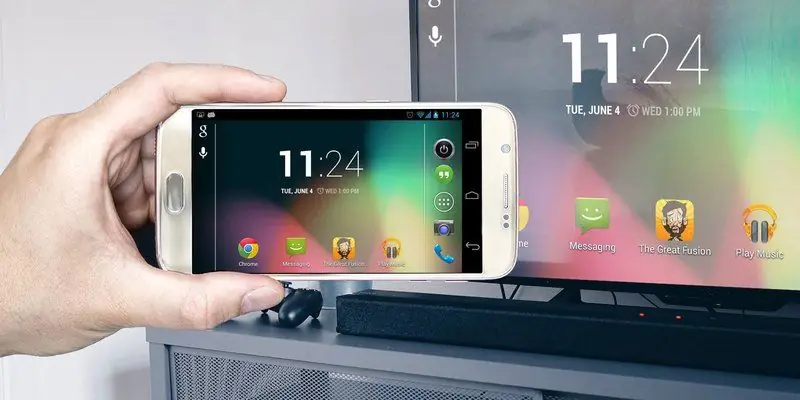
Several ways to connect your phone or tablet to TV. How to run a file from a phone on a TV or start controlling a TV using a phone (like a remote control)
